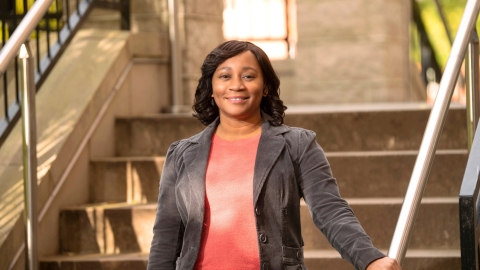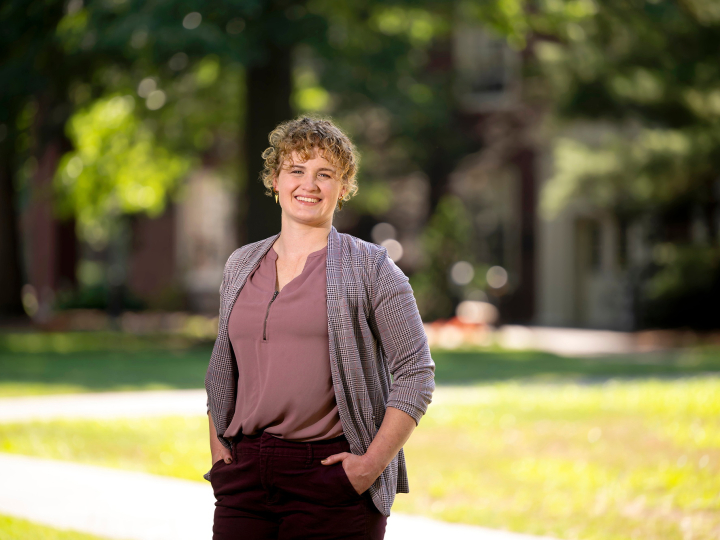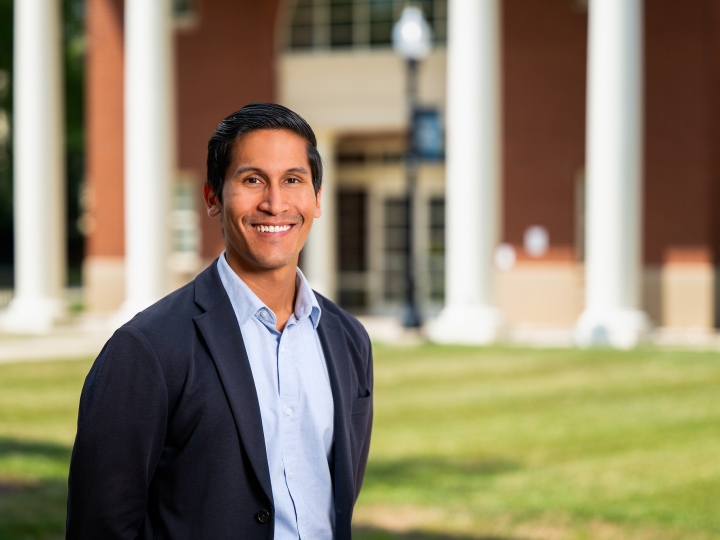
Terri Norton, Civil & Environmental Engineering
November 1, 2017
My focus and passion has been for underrepresented and first-generation college students, because if someone had not invested in me, then I would not be here.
From Haiti to Japan to Puerto Rico, Professor Terri Norton, civil & environmental engineering, has watched the same scene replay time and again in the wake of natural disasters: victims digging through the rubble of their devastated neighborhoods in search of anything — fragments of corrugated roofing, slabs of sheetrock, shards of rebar — to piece together a temporary shelter.
A civil engineer who studies disaster preparedness and recovery, Norton was inspired by these scenes to consider better ways to aid victims during their most vulnerable times. Before trucking in temporary housing from afar — a difficult and often time-consuming process — could governments and disaster-relief organizations use debris itself to build temporary shelters?
"As a structural engineer, I think about how we can rebuild structures that are safer for individuals to inhabit," Norton says. "But in the meantime, there are still displaced people and if there is construction waste around, why can't we use that to provide shelter?"
Norton's research proposes various methods of debris recycling, such as making concrete from the rubble of earthquake-felled buildings, with the goal of developing construction plans and guidelines tailored to the debris found in different world regions.
A key case study for her has been the Japanese government's reconstruction efforts following the earthquake and tsunami disaster that struck the northern Tohoku region in March 2011. Norton has watched these efforts unfold on the ground through a series of research and service visits to the Pacific nation, including an extended survey funded by the U.S. Department of State's Fulbright Program. Whenever possible, she has brought students along with her — a routine she intends to continue at Bucknell.
"The first time I went to Japan as a graduate student was a big shock, but by the end of the experience, I learned more about myself — that I was willing to try new things and that it was OK for me to be that far away from home," Norton says. "Particularly for underrepresented students, I think it's not only valuable to expose them to my research, but also to expose them to an international setting."
Expanding access to these sorts of experiences — as well as others like service-learning and community outreach — is a key focus for Norton in her role as associate dean for students & strategic initiatives. She's also hoping to build on the cross-disciplinary learning opportunities that are the hallmark of a Bucknell engineering education, the value of which she knows well from her work on disaster recovery.
"Disaster recovery isn't just about the buildings we build; it's about the people and businesses that have to use those buildings," Norton says. "If you work with a social scientist, an environmental scientist, an emergency manager or a first responder during a disaster, you see where your piece fits into the big picture and why it's so important for us to collaborate."

